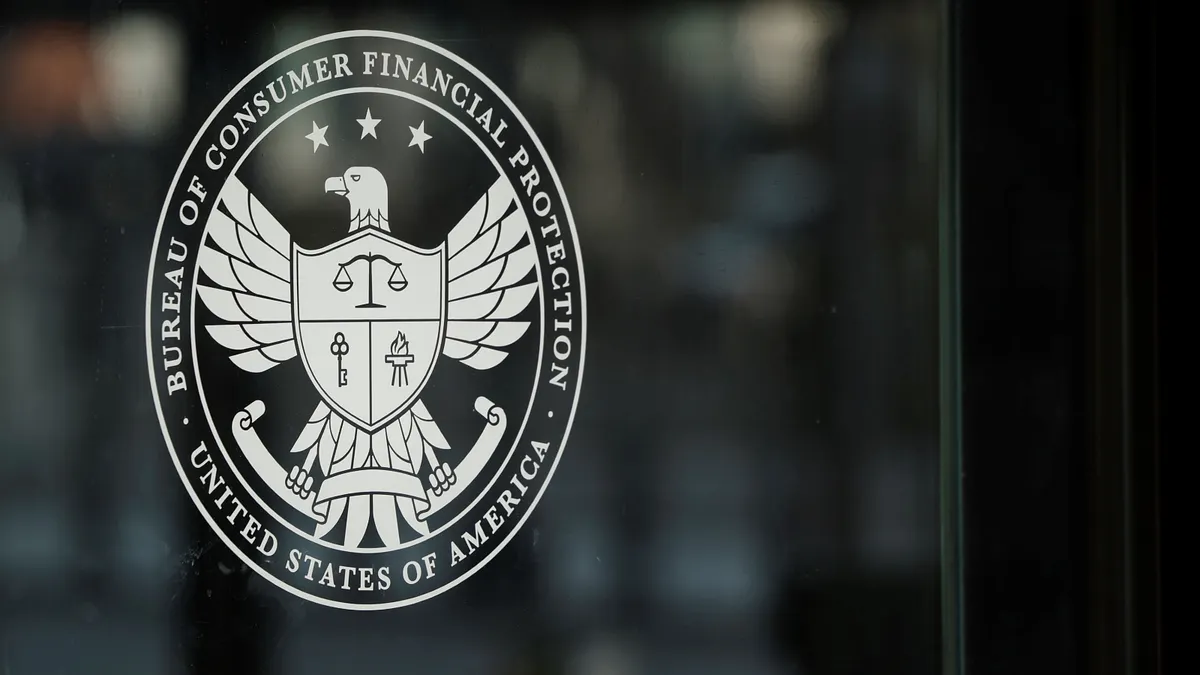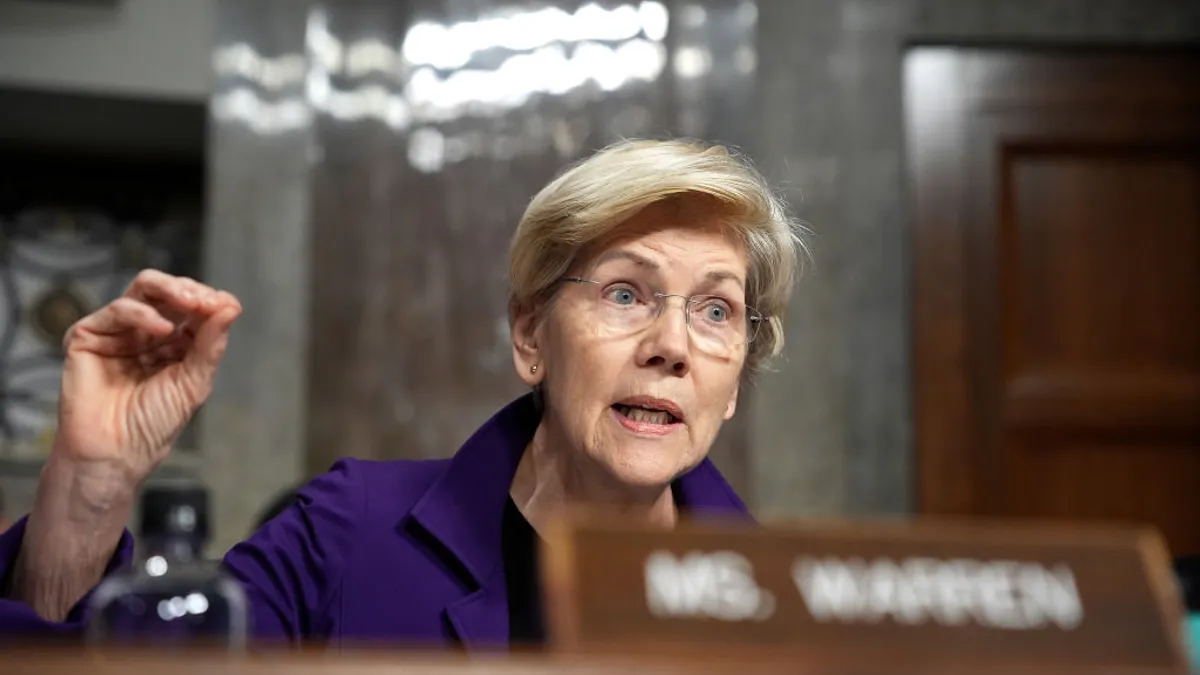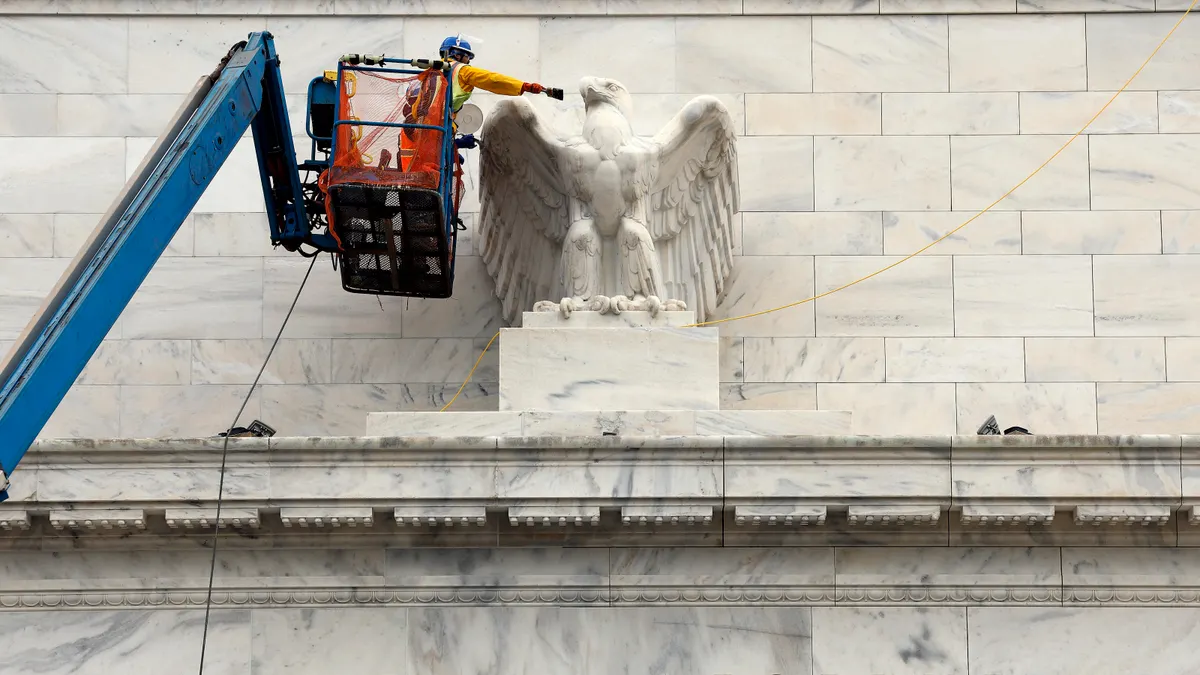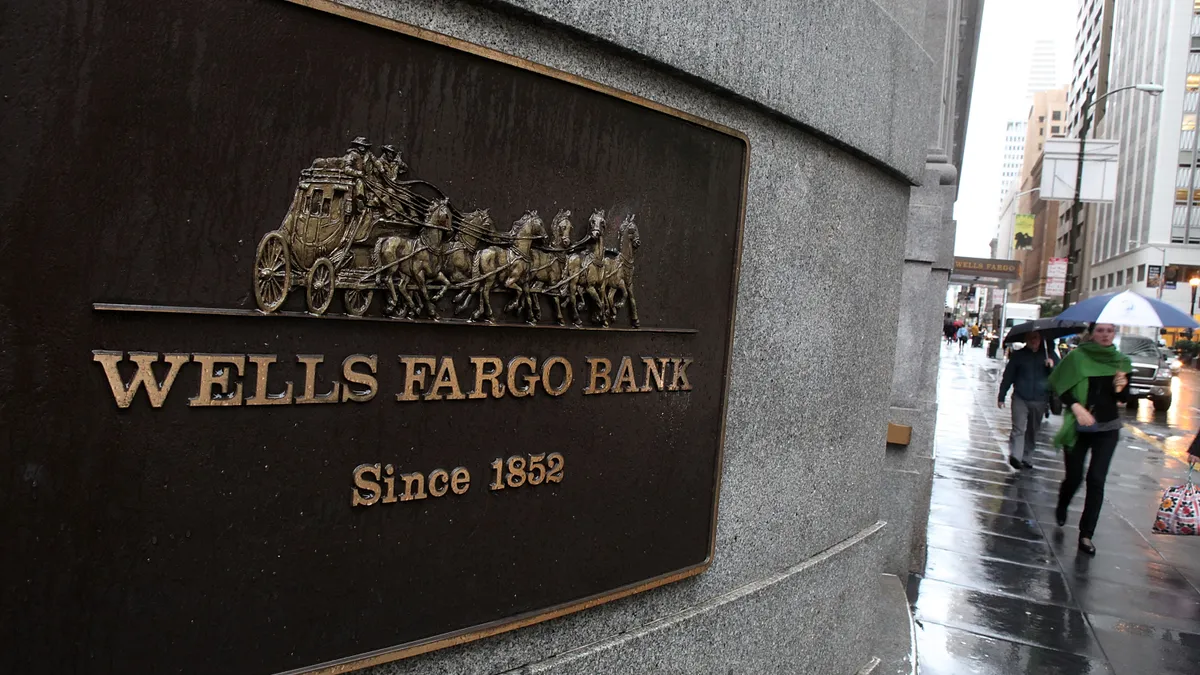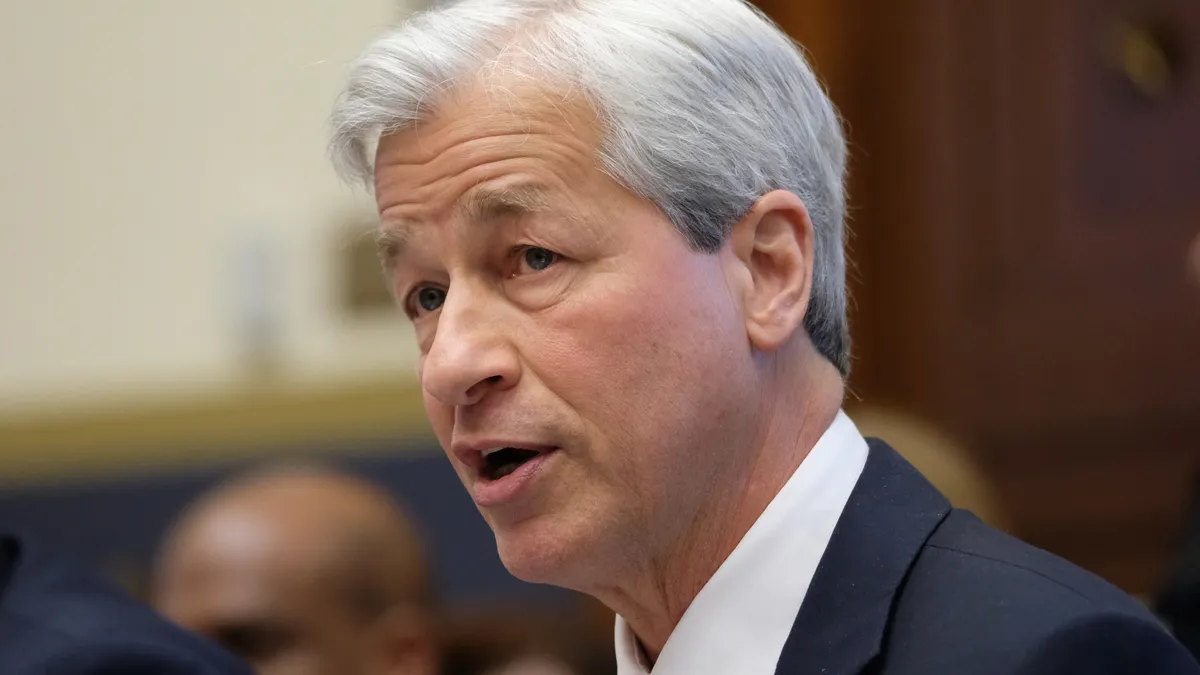Lawyers for a workers union urged a federal court Sunday to clarify a preliminary injunction to ensure that Consumer Financial Protection Bureau leaders don’t shutter the agency by refusing funding.
“The defendants have filed a ‘notice’ announcing that they intend to allow the Bureau to run out of funding, and when it does, they will stop complying with the Court’s injunction,” attorneys for the National Treasury Employees Union wrote Sunday. “Parties may not simply declare that an injunction no longer applies.”
The CFPB this month alerted the U.S. District Court for the District of Columbia that it “anticipates exhausting its currently available funds in early 2026.”
At issue is the definition of “combined earnings.” The Justice Department’s Office of Legal Counsel sent a memo to CFPB Acting Director Russ Vought on Nov. 7, asserting that it interprets earnings – from which the Federal Reserve derives the CFPB’s operating budget – as profit rather than revenue. By that math, the Fed has operated at a loss since 2022.
NTEU attorneys asserted Sunday that the Fed earns “billions of dollars a year – from interest on loans and securities, and fees assessed” on banks. But because the Fed has raised interest rates since 2022, its combined interest expenses have exceeded combined earnings.
The plaintiffs cite congressional testimony from Fed Chair Jerome Powell, who told lawmakers the central bank examined that balance “very carefully” and concluded the law is “very clear” that the Fed must fund the CFPB even when its expenses exceed its earnings.
Further, NTEU attorneys said, the OLC memo “admits, nobody – not any court, not the Fed, and not the CFPB – has ever interpreted” combined earnings as it suggested this month.
“Both the Fed and the CFPB (until Vought needed a mechanism to circumvent this Court’s injunction) have consistently understood ‘combined earnings’ to mean, simply, everything the Fed earns,” NTEU attorneys wrote.
The OLC’s interpretation relies on “technical definitions from corporate accounting,” NTEU attorneys wrote. “But the Fed is not a private corporation. It sets monetary policy for the United States. … The only reason to adopt its reading of ‘combined earnings’ is to shut down the CFPB.”
Vought, in an appearance last month on “The Charlie Kirk Show,” indeed said of the CFPB: “We want to put it out – and we will be successful probably within the next two, three months.”
The bureau last week indicated it is transferring all of its active litigation to the DOJ.
By the OLC’s logic, NTEU attorneys wrote, Congress would have passed a Dodd-Frank Act “that forces the Federal Reserve Board to choose between increasing interest rates to combat inflation and funding the CFPB.”
“Fortunately, that is not the law that Congress wrote,” the attorneys asserted, blasting the CFPB for not choosing another path.
“Rather than asking this Court to modify its injunction (which would require them to demonstrate that it should), the defendants have chosen to just ‘inform’ the Court that they ‘do not understand’ the injunction to bind them once the CFPB runs out of money – even if that’s because they decided not to ask the Fed for funding,” NTEU attorneys wrote.
‘Humility pledge’
Outside of the courtroom, the CFPB on Friday issued what it termed a “humility pledge” meant to be read aloud by bank examiners to banks before exams.
The statement drills down on the bureau’s narrowing of focus toward consumer threats that harm service members, veterans and their families and reiterates that the bureau will “avoid, where possible, duplication of supervision, where States or other regulators are already doing that job.”
The bureau pledges shorter examination times – reduced from eight weeks to a period “commensurate with the defined scope of exams.”
“No longer will the Bureau ask for expansive data sets or other information which may seem unrelated to the exam or include information inconsistent with Bureau priorities,” the pledge reads. “Any follow-up requests by examiners will first be discussed with an entity and will be tailored to the scope of the exam and the information already received from the entity.”
The CFPB states its goal as “[to] work collaboratively with the entities to review entities’ processes for compliance and/or remedy existing problems,” emphasizing self-reporting and encouraging banks to resolve issues with the CFPB’s supervision unit, rather than enforcement.
That may lend credence to a narrative, from an all-hands meeting of enforcement staff, in which the bureau’s acting enforcement chief said all 170 employees in his division were slated for an unpaid leave designation at the end of the year.
Curiously, perhaps, the pledge encourages banks, if they find their exam experience to be “inconsistent with these principles,” to reach out via email to a designated CFPB supervisory official or the bureau’s chief legal officer.
In a post Monday on the NTEU’s website, union member Alexis Goldstein asked, “Why is Russell Vought showing the world his weird, creepy pledge of allegiance to big corporations?”
Another union member, Doug Wilson, notes a passage in the pledge in which the bureau asserts that examiners will be “encouraged and incentivized to complete the work promptly and under budget.”
“This memo doesn't add up,” Wilson wrote. “Vought’s stopped all supervision exams in 2025, refuses to fund CFPB and says he’s shutting us down by 2026. So how will we supervise banks in 2026 if CFPB is closed? How can bank exams be ‘under budget’ if there is no budget?”
In an emailed press release to accompany the humility pledge, the CFPB characterized the bureau’s Biden-era supervision efforts as “thuggery,” calling out ex-supervision chief Lorelei Salas as “a former [Democratic donor George] Soros activist who was put on leave in February 2025.” Further, bureau leadership labeled the pre-Trump supervision unit as “a weaponized arm of the CFPB.”
In a LinkedIn post, Allison Preiss, who until February served as senior adviser to the CFPB director, said the humility pledge “might be better characterized as a humiliation pledge.”
“The notion that federal employees should genuflect, trembling, before a Wells Fargo or Bank of America, is some of the most ridiculous nonsense I've read all week,” she wrote.
In another LinkedIn post, Tyler Creighton, counsel at the CFPB, took issue with the idea that the bureau is calling out examiners’ past conduct.
“Supervision's workers have always conducted examinations professionally, efficiently, conscientiously, and with a focus on remedying consumer harm,” he wrote. “We will continue to do so, just as soon as Donald Trump and Russell Vought end the nearly 10-month suspension of examinations and let us get back to work for the American people.”


